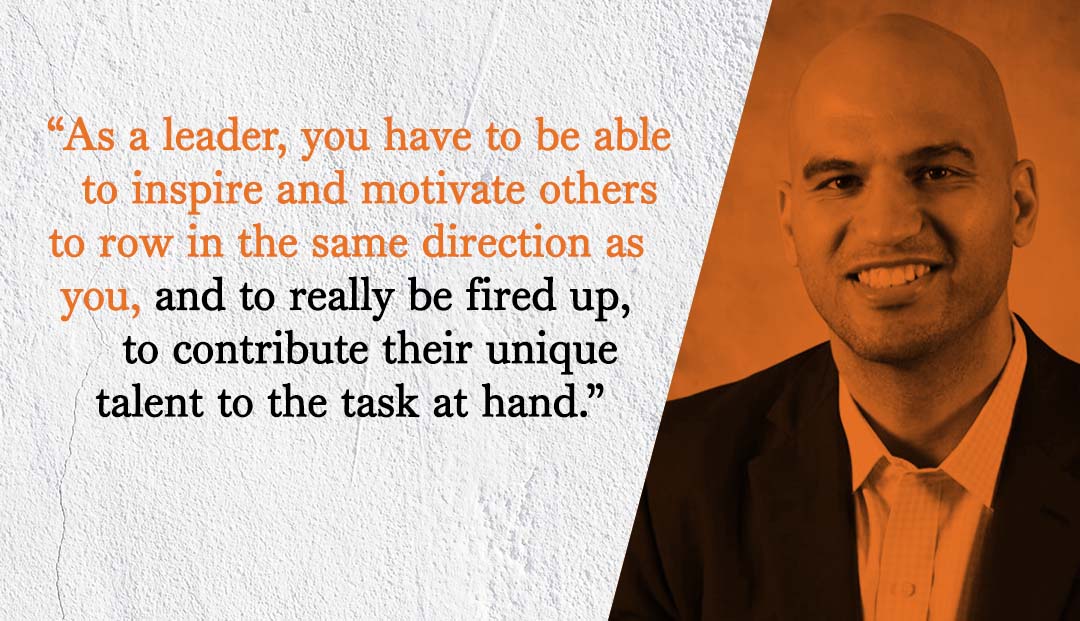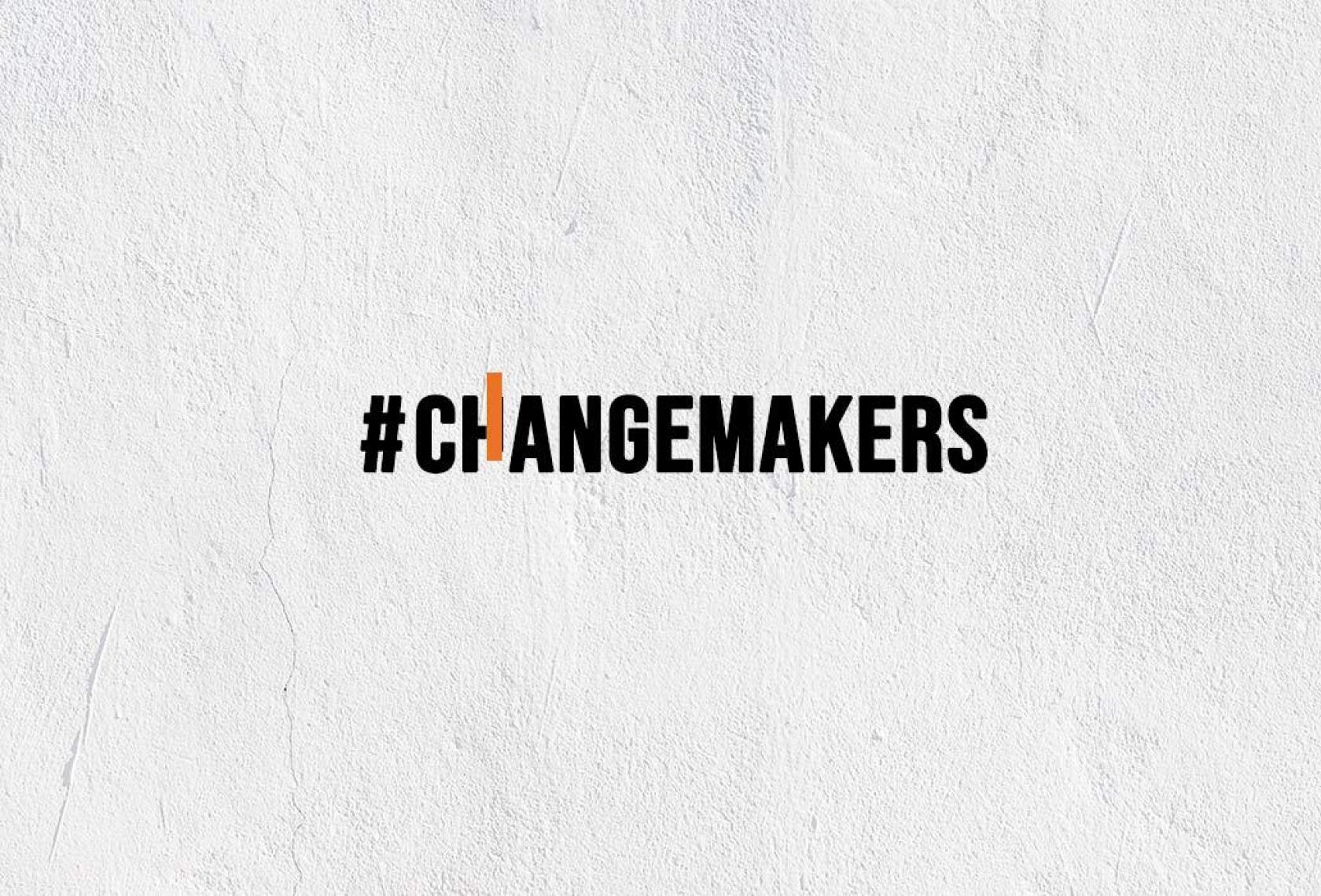Growing up in poverty, Yusuf Dahl survived the streets of Milwaukee under the wing of his brother. By age 14, he was in juvenile detention for a three-year sentence for drug dealing. After serving five years and teaching himself software development, Dahl struggled to find a living wage as a young black male with a criminal record. This, combined with the foreclosure crisis destroying his own community, made Dahl take his future into his own hands.
He founded the Milwaukee Metro Management, an award-winning affordable housing development and management company with a vision of creating high quality affordable housing. Dahl currently serves as the Bradbury Dyer Class of ’64 Director of Entrepreneurship and Innovation at Lafayette College and is co-founder of the Real Estate Lab in Allentown, Pennsylvania.
In this Q&A and bonus podcast below, Dahl discusses how inequality in both wealth and opportunities excludes people of color, and how his work with real estate entrepreneurs provides the knowledge, networks, capital, and technical support to help launch businesses in low-income communities.
Q: What is/are the most important policy issue(s) facing us today?
Dahl: I’m focused and concerned about inequality, both wealth and opportunity inequality. Both are related, and wealth engenders opportunity. However, for those without wealth, the only way to acquire it is to have access to the opportunities that generate it. Historically, these are opportunities that folks of color in particular have been excluded from. This can mean attending high-opportunity schools, living in high opportunity neighborhoods where you’re able to build extended professional networks and pursue careers, and well compensated areas. It also means having access to capital and technical support to launch businesses. In my situation, the funding issue was particularly acute because I was looking to invest in my community, which, for all intents and purposes, was a highly impoverished community at a time when foreclosures were rampant. I had a banker describe it to me as “trying to catch a falling knife.” They just weren’t willing to deploy capital in areas where it was being destroyed through vandalism, vacancies, and fires. Fortunately at the time, I was working as a software developer, so I had a W-2 income. I was able to borrow against my 401k and max out credit cards, and I was able to get started.
Q: How did you acquire your software development skills?
Dahl: I was in prison, and I had a chance encounter with a white collar criminal who had defrauded the Kohler Corporation. He had a master’s degree in engineering, an incredibly bright person. I befriended him, and he took an interest in me. He appreciated the way I was always reading and seeking new knowledge. He opened up the opportunity that existed in software. He told me about certifications that I could study for and get when I was released, which would allow me to get my foot in the door. When I was in prison, I didn’t have a college degree at that time. I was released at 23 and the thought of going to sit through a history 101 and four years of undergraduate education, just to get a decent job, wasn’t feasible. After I was released, I took the test, got the Microsoft certification, and was able to get my first job and built my skill set from there.
Q: Which projects or initiatives that you’re working on now are you most excited about?
Dahl: One venture is the Real Estate Lab in, in Allentown, Pennsylvania, which provides the knowledge, networks, and capital to support Allentown’s next generation of real estate entrepreneurs. The program is free, and we introduce participants to the investor mindset. We introduce them to debt as a tool to create wealth for themselves and not for others, which is typically how that works in low-income communities. We provide mentorship, access to networks, and most importantly, access to capital. We launched last year during the pandemic, and to date we’ve supported over $600,000 worth of participant-led transactions. We’ve assembled some of the largest area investors to help bring these folks along. The second-order benefit of all of this is local property ownership, which often translates to better management and community outcomes. While I’m working on other things as well, this is something I’m particularly excited about.
Q: What made you move to that area particularly? What’s the landscape of Allentown?
Dahl: Allentown is a very interesting city, not unlike Milwaukee. It’s a Rust Belt city that fell on hard times in the seventies and eighties because of the decline of manufacturing. It’s an area that many people, from an outward perspective, might associate with the decline of American manufacturing, but it’s a great city. A lot is happening, but like a lot of communities, the owners of properties within these communities don’t necessarily reflect the folks who are living there. And this is something you see across the country.

Q: Over the course of your career, what are the most important skills/strategies you’ve learned?
Dahl: It’s the importance and ability to harness the power of others. You can’t scale your impact if you’re the only one working on something. I’ve seen this in multiple different ventures that I’ve been involved in. You have to be able to inspire and motivate others to row in the same direction as you, and to really be fired up, to contribute their unique talent to the task at hand. You’re not always in the position to choose who you work with, but if you’re fortunate enough to be in a leadership position, you have a responsibility to help others succeed by playing to their strengths and understanding and what motivates them. This was something early on that was hard for me. I have a friend who’s in human resources and she once said that I had a “be” communication style: be brief, be bright, and be gone. While there’s certainly some truth to her assessment, I’ve come to recognize that’s not how everyone interacts, and it can be quite off-putting to some folks. If you’re going to bring out the best in others, I’ve had to develop an increased self-awareness and the ability to connect, communicate, and motivate others. It starts by listening to other people, and listening to folks doesn’t necessarily mean agreeing with folks. You’re not always going to have consensus, but if folks aren’t feeling heard, if folks don’t feel like they’re part of the discussion, it’s tough to get them to row in the same direction with you, at least in an authentic way.
Q: What does it take to be a good leader?
Dahl: From my experience, humility has really been an important attribute in terms of leading. Just because you’re leading an effort, a venture, an organization, a department, it doesn’t mean you’re the only qualified or even perhaps the most qualified. You have to have a certain level of humility as you’re working with folks, because everyone brings completely different talents and capabilities to the table, and you are never going to optimize your team to perform at the highest level if everyone is not bringing their best game to the table.
Q: In what ways did the Princeton School of Public and International Affairs prepare you for your career?
Dahl: Princeton is a unique environment. It’s full of bright, curious, talented people, not just the faculty and the staff, but your classmates. It was an environment that in many ways left me no choice but to level up and improve the rigor of my thinking and the quality of my work.
I had a group project once, and we were writing a memo. My responsibility was to find some data to support our argument and work it into the memo. The next day, I went and looked at the document, and a classmate had completely reworked the graph that I had put into the report to display it in really a more powerful way. When I asked her, why did she go through the extra effort? She said that she was trained to never just regurgitate the work of others, but to always add value to it. It’s a small thing, but it did leave a big impact on me. I have no doubt that the standard of work I set for myself, both in quality and quantity, is higher as a result of my time at Princeton.
Q: How can young people entering the workforce be successful? What advice would you give to our prospective students?
Dahl: I’ll have to borrow from the great John Templeton, who was the dean of admissions when I was there. He admonished all of us to be outrageously ambitious. Princeton is not so much a place that you come to, but rather set off from. I would encourage, especially if you’re going to come to Princeton, to maximize your time on campus, build relationships, challenge yourself, be okay with failure. If you haven’t failed during your time at Princeton, you haven’t pushed yourself hard enough. I might’ve taken that too literally, and thank goodness for Karen McGuinness for reeling me in — otherwise I wouldn’t have my degree right now.
I tried a lot of different things. I really stretched myself. I took classes outside of the Woodrow Wilson School, which was its name at that time. I’m not just talking about challenging yourself academically; they should challenge themselves to meet new people, leave the orange bubble every now and then, and get involved in other organizations that are doing work that they care about. On a more tactical note, if you are going to the public policy school, save your money and win every lunch offered by the folks at the service auction. I was able to spend time with really incredible people outside of the classroom. Folks like Bobby Willig, Robert George, very prominent professors there, and even better people. Not to mention some incredible experiences I had with classmates who had donated their time to the service auction. I was fortunate to serve as a co-chair one year. It’s a phenomenal event.
#Changemakers: Alumni Making a Difference is a Q&A series featuring alumni of the Princeton School of Public and International Affairs.



